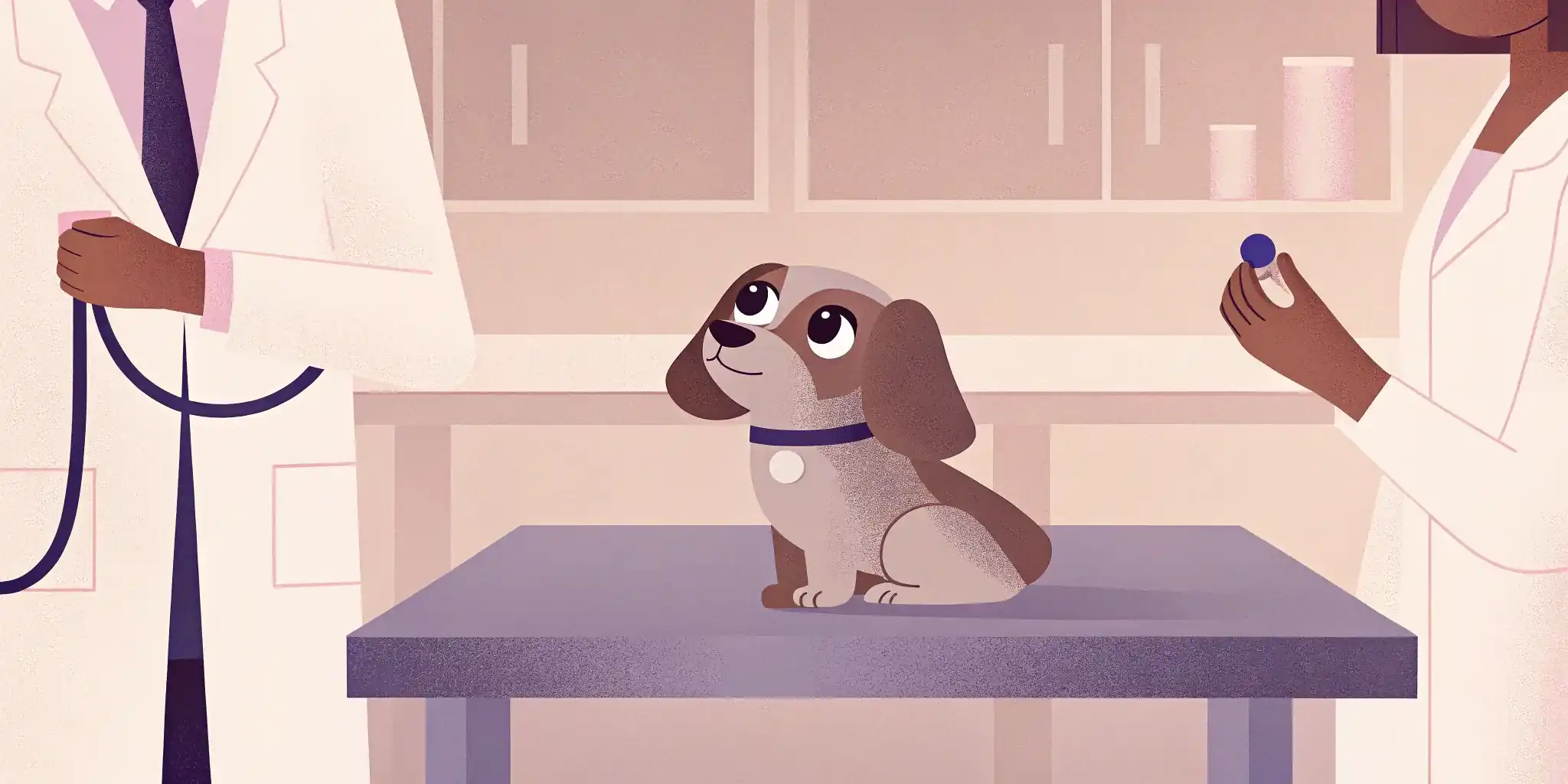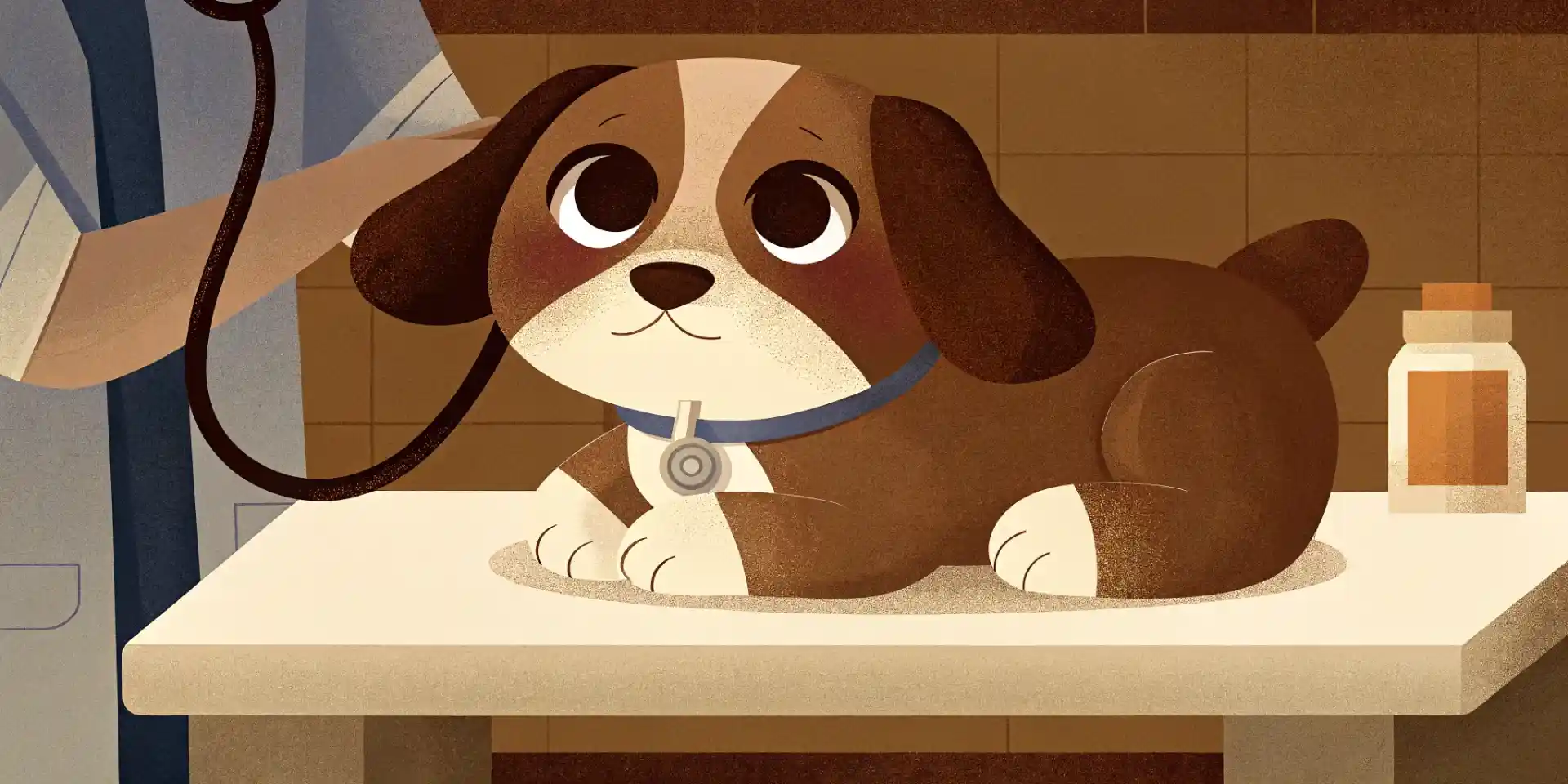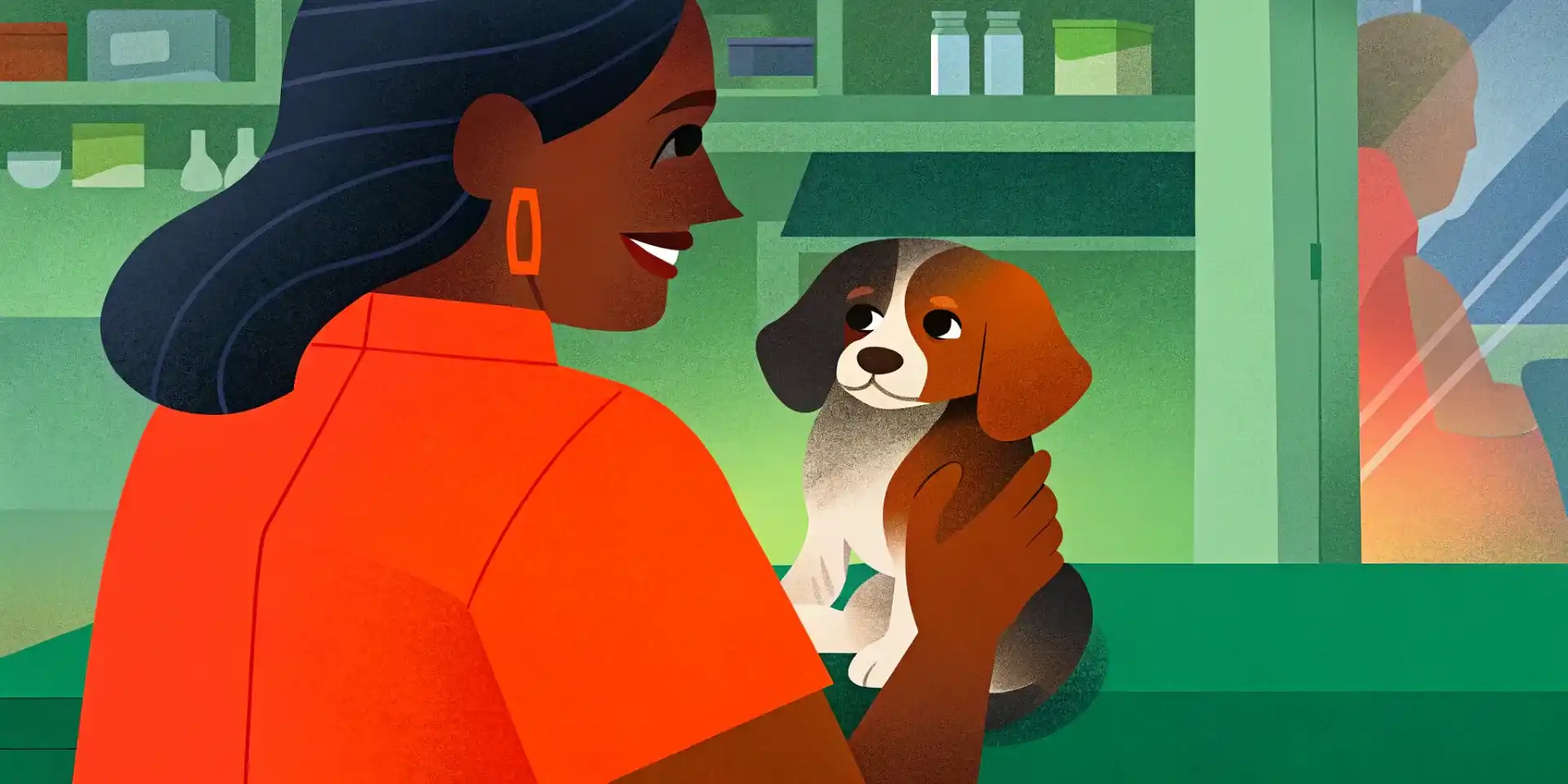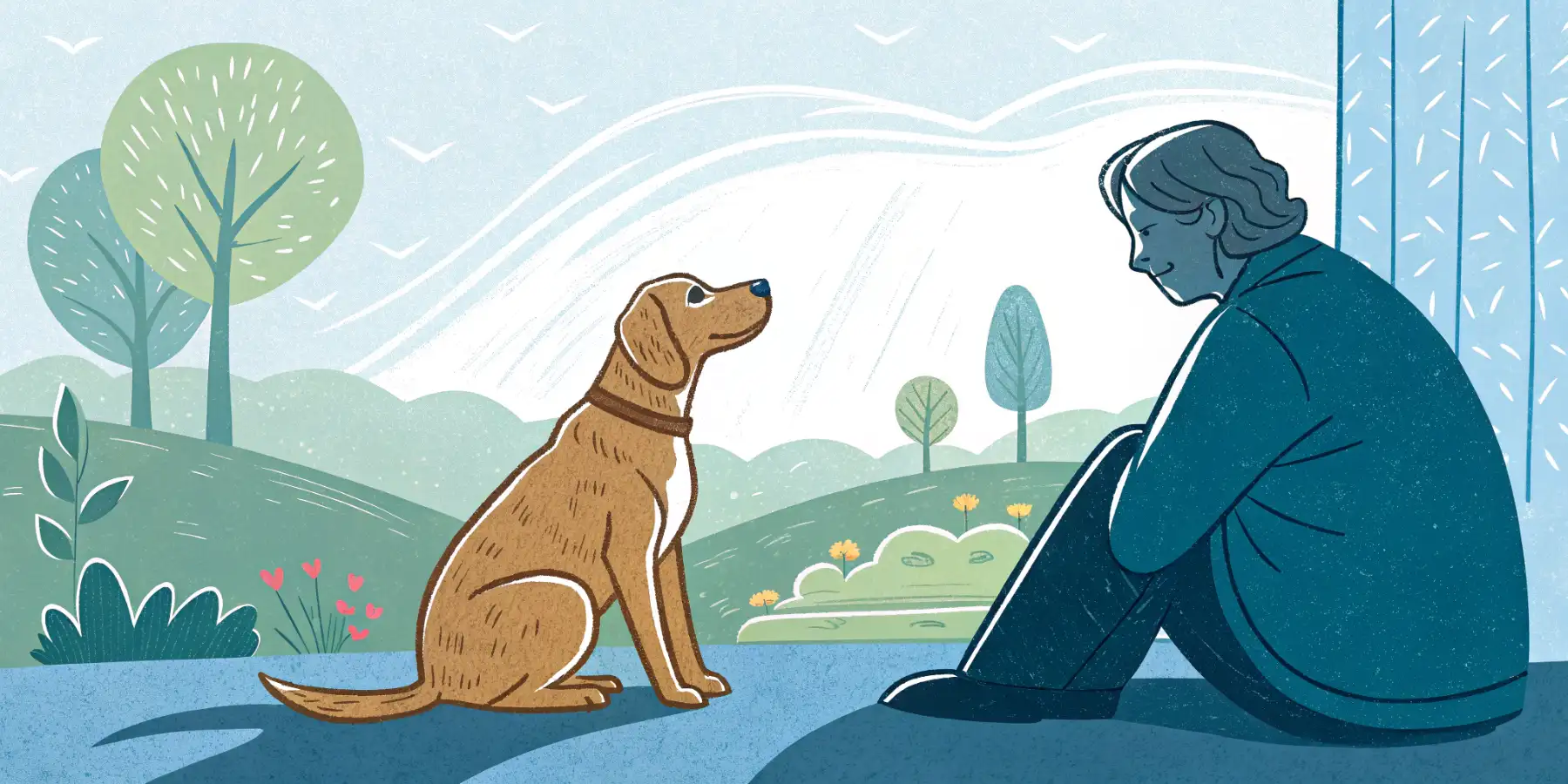
Puppy's First Vet Visit: Tips & Questions
Puppy's first vet visit? 🐾 Prep for success! Learn what to expect & questions to ask for a healthy, happy pup! #puppyhealth #vetvisit
Your Puppy’s First Vet Visit: Setting the Stage for a Lifetime of Health
Bringing a new puppy home is one of life’s greatest joys! Those tiny paws, that wet nose, and that boundless energy… it’s pure, unadulterated fun. But amidst all the cuddles and playtime, it’s crucial to prioritize your puppy’s health. That’s why scheduling their first vet visit is absolutely essential, ideally within the first week or two of bringing them home. This appointment is more than just a formality; it’s the foundation for a long and healthy life together.
Why is the First Vet Visit So Important?
Think of your puppy’s first vet visit as a comprehensive health check-up and an opportunity to establish a relationship with a veterinary professional you trust. This visit serves several critical purposes:
- Early Detection of Health Issues: Puppies, especially those from shelters or rescues, can sometimes harbor underlying health problems. The vet can identify conditions like parasites, heart murmurs, or congenital defects early on, allowing for prompt treatment.
- Vaccination Schedule: Your vet will establish a vaccination schedule to protect your puppy from dangerous and potentially fatal diseases like parvovirus, distemper, and rabies. This is crucial for preventing illness, especially during those early months when their immune system is still developing. We’ll get into exactly what shots does my puppy need during this visit.
- Parasite Prevention: Puppies are particularly susceptible to internal and external parasites like worms, fleas, and ticks. The vet will recommend appropriate deworming medications and parasite preventatives to keep your furry friend healthy and comfortable.
- Nutrition and Weight Management: Proper nutrition is vital for a puppy’s growth and development. Your vet can advise you on the best food choices, portion sizes, and feeding schedules to ensure your puppy is getting the nutrients they need to thrive.
- Behavioral Guidance: Believe it or not, your vet can also offer valuable insights into puppy behavior. They can discuss common issues like housebreaking, chewing, and socialization, and provide tips to help you raise a well-adjusted and happy dog.
 A veterinarian carefully examines a small puppy during its first check-up, checking its heart rate and breathing.
A veterinarian carefully examines a small puppy during its first check-up, checking its heart rate and breathing.
What to Expect During the Appointment
The first vet visit can feel a little overwhelming, both for you and your puppy. Knowing what to expect can help ease any anxiety. Here’s a general overview:
- Physical Examination: The vet will perform a thorough physical examination, checking your puppy’s eyes, ears, nose, mouth, skin, and coat. They’ll also listen to their heart and lungs, palpate their abdomen, and check their joints and muscles.
- Vaccinations and Deworming: Depending on your puppy’s age and vaccination history, they’ll likely receive their first round of vaccinations and deworming medication. Don’t hesitate to ask questions about the specific vaccines being administered and any potential side effects.
- Fecal Examination: Your vet will likely request a fecal sample to check for intestinal parasites. It’s a good idea to collect a fresh sample the morning of your appointment.
- Discussion of Preventative Care: The vet will discuss preventative care measures, such as heartworm prevention, flea and tick control, and dental hygiene. They can recommend specific products and strategies based on your puppy’s individual needs and lifestyle.
- Microchipping: If your puppy isn’t already microchipped, your vet will likely recommend this simple and painless procedure. A microchip is a permanent form of identification that can help reunite you with your puppy if they ever get lost. I highly recommend microchipping, as it provides an extra layer of security for your pet.
- Q&A Session: This is your opportunity to ask any questions you have about your puppy’s health, behavior, or care. Don’t be afraid to voice your concerns or seek clarification on anything you’re unsure about.
Key Questions to Ask Your Veterinarian
Preparing a list of questions beforehand can help you make the most of your puppy’s first vet visit. Here are some essential questions to consider:
- What is the recommended vaccination schedule for my puppy?
- What type of food do you recommend for my puppy, and how much should I feed them?
- What are the best methods for preventing fleas, ticks, and heartworm in my area?
- When should I start thinking about spaying or neutering my puppy?
- What are some common puppy behavioral issues, and how can I address them?
- What are the signs of a medical emergency that require immediate veterinary attention?
- What is your policy for after-hours care and emergencies?
- Do you offer pet insurance, or can you recommend a provider?
- What do I need to know about potty training a new puppy?
 A curious puppy gazes adoringly at its owner, strengthening their bond during a training session.
A curious puppy gazes adoringly at its owner, strengthening their bond during a training session.
Making the Experience Positive
The first vet visit can be stressful for a puppy, so it’s important to make the experience as positive as possible. Here are a few tips:
- Bring your puppy in a carrier or on a leash. This will help keep them safe and secure in the waiting room and during the examination.
- Bring treats and toys. Use positive reinforcement to reward your puppy for good behavior.
- Stay calm and reassuring. Your puppy will pick up on your anxiety, so try to remain relaxed and positive.
- Handle your puppy frequently. Get them used to being touched and examined, especially around their paws, ears, and mouth.
- Consider a “happy visit.” Before the actual appointment, stop by the vet’s office with your puppy just to say hello and get a treat. This can help them associate the vet with positive experiences.
Finding the Right Veterinarian
Choosing the right veterinarian is a crucial decision. You’ll be entrusting them with your puppy’s health and well-being for years to come. Here are some factors to consider:
- Recommendations: Ask friends, family, and neighbors for recommendations.
- Location and Hours: Choose a veterinarian whose office is conveniently located and has hours that work with your schedule.
- Services Offered: Make sure the veterinarian offers the services you need, such as vaccinations, surgery, dental care, and emergency care.
- Personality and Communication Style: Find a veterinarian who is compassionate, knowledgeable, and communicates clearly.
- Visit the Clinic: Schedule a visit to the clinic to meet the veterinarian and staff and get a feel for the environment.
 A friendly veterinarian smiles at a new puppy owner, establishing a comfortable and trusting relationship for future pet care.
A friendly veterinarian smiles at a new puppy owner, establishing a comfortable and trusting relationship for future pet care.
Beyond the First Visit: Continuing Care
Your puppy’s first vet visit is just the beginning of a lifetime of preventative care. Regular check-ups, vaccinations, parasite prevention, and good nutrition are all essential for keeping your furry friend healthy and happy. Remember, preventative care is always more cost-effective than treating illnesses!
By prioritizing your puppy’s health from the start, you’re setting the stage for a long and loving companionship. Enjoy the journey of puppyhood, and don’t hesitate to reach out to your veterinarian with any questions or concerns along the way.


